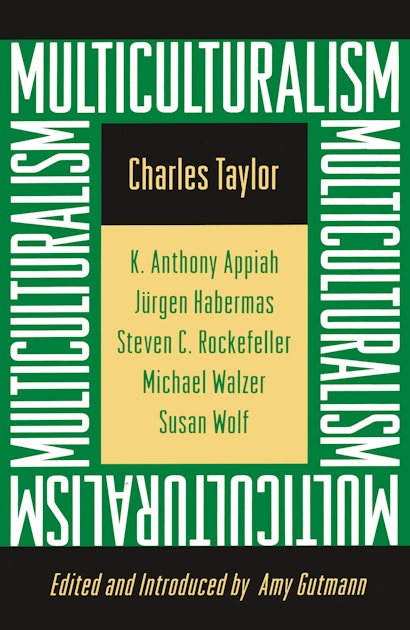A new edition of the highly acclaimed book Multiculturalism and “The Politics of Recognition,” this paperback brings together an even wider range of leading philosophers and social scientists to probe the political controversy surrounding multiculturalism. Charles Taylor’s initial inquiry, which considers whether the institutions of liberal democratic government make room—or should make room—for recognizing the worth of distinctive cultural traditions, remains the centerpiece of this discussion. It is now joined by Jürgen Habermas’s extensive essay on the issues of recognition and the democratic constitutional state and by K. Anthony Appiah’s commentary on the tensions between personal and collective identities, such as those shaped by religion, gender, ethnicity, race, and sexuality, and on the dangerous tendency of multicultural politics to gloss over such tensions. These contributions are joined by those of other well-known thinkers, who further relate the demand for recognition to issues of multicultural education, feminism, and cultural separatism.
Praise for the previous edition:
Charles Taylor is Professor of Philosophy and Political Science at McGill University; K. Anthony Appiah, Professor of Afro-American Studies and Philosophy at Harvard University; Jürgen Habermas, Professor of Philosophy at Johann Wolfgang Goethe-Universitat, Frankfurt am Main; Steven C. Rockefeller, Professor of Religion at Middlebury College; Michael Walzer, Permanent Member of the Faculty at the School of Social Sciences at the Institute for Advanced Study in Princeton; Susan Wolf, Professor of Philosophy at The Johns Hopkins University; and Amy Gutmann, Laurance S. Rockefeller University Professor of Politics and Director of the University Center for Human Values at Princeton University.
"Original and important.... The essays by Taylor and the other contributors raise the debate to a new level, providing it with the high moral seriousness it deserves."—Lawrence Blum, Boston Review
"Multiculturalism ... is packed with depth, intelligence, and (to revive an old-fashioned word) wisdom.... It is highly relevant to pressing debates about nationalism and its identity."—Michael Saward, The Times Higher Education Supplement
"[Taylor's] comments about multiculturalism in particular demonstrate his knack for finding sensible middle ground between unreasonable extremes.... His writing here is clear, direct, and refreshingly free of philosophical jargon. He is also delightfully nonpartisan."—David McCabe, Commonweal
"Multiculturalism . . . is packed with depth, intelligence, and (to revive an old-fashioned word) wisdom."—Michael Saward, The Times Higher Education Supplement
"[Taylor's] comments about multiculturalism . . . demonstrate his knack for finding sensible middle ground between unreasonable extremes. . . . His writing here is clear, direct, and refreshingly free of philosophical jargon. He is also delightfully nonpartisan."—David McCabe, Commonweal
". . . engaging, thought-provoking, suggestive, full of insights on questions of intellectual history, philosophical and moral psychology, and current issues in political philosophy and practice."—Ethics
"Because it impinges upon so much—from campus speech to bilingual education to the causes and effects of political correctness—the current discussion on multiculturalism is essential to understanding Western academic culture as it exists today (and as it will exist in the future). This book is a valuable guide to the complexities involved."—Washington Times

